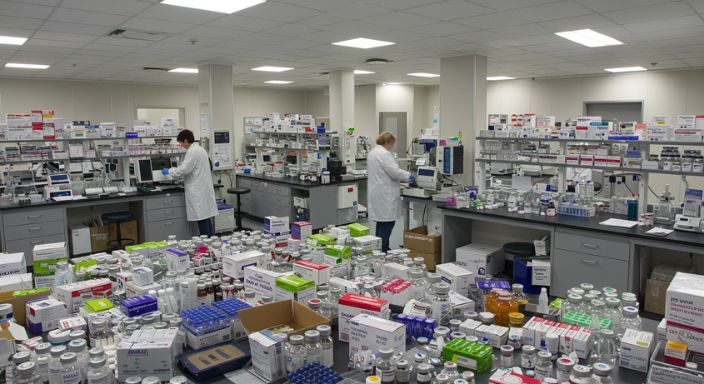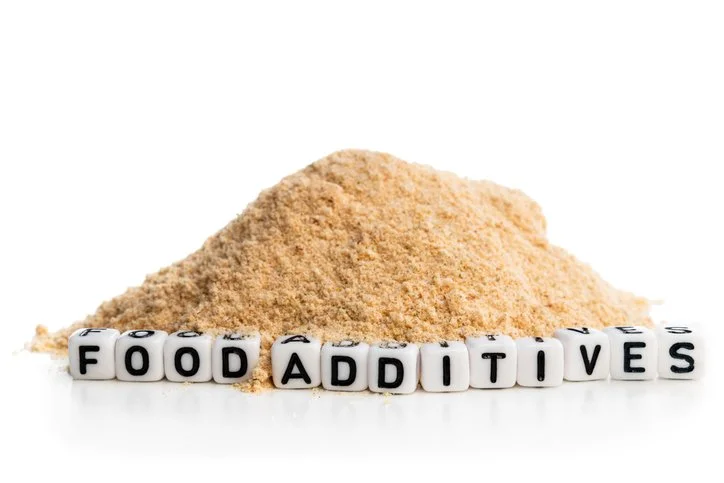From Fringe to Forefront: The Health Awakening of Our Time
For decades, the "fringe" has been a label slapped on those who dared to question the dominant narratives around vaccines, modern medicine, and the industrial food system. These skeptics—often dismissed as conspiracy theorists or unscientific—challenged the safety of pharmaceutical interventions, the purity of our food supply, and the root causes of our worsening health. But something remarkable is happening: what was once fringe is becoming mainstream. Public sentiment is shifting, driven by mounting evidence, personal experiences, and a growing distrust in institutions that seem more invested in profit than well-being. Additionally, our current administration's Make America Healthy Again (MAHA) is going to address the issues I mentioned above. Let's explore how this transformation is unfolding, with recent examples and hard data underscoring the urgency of this awakening.
Vaccines and Medicine: Demanding Meaningful Testing
The once-unquestionable trust in vaccines and pharmaceuticals has eroded as people demand transparency and rigorous, independent testing. Take the COVID-19 vaccines, which were rolled out at unprecedented speed under emergency use authorizations. While hailed as a triumph of modern science, their rapid deployment left lingering questions about long-term safety and efficacy. Reports of adverse events, like myocarditis in young men or menstrual irregularities in women, fueled skepticism that wasn't adequately addressed by dismissive official responses. The fringe call for placebo-controlled, long-term studies—once mocked—is now echoing in mainstream conversations, with even some scientists and doctors advocating for better post-market surveillance.
A recent example is the pushback against drugs like Ozempic, a GLP-1 agonist originally for diabetes but now a weight-loss sensation. Touted as a miracle, its side effects—muscle loss, gastrointestinal distress, and potential mental health risks—have sparked debates about whether its benefits outweigh its costs. Critics, once sidelined, now find their concerns amplified as patients and researchers alike call for more comprehensive testing beyond the pharmaceutical industry's self-reported trials. This shift isn't anti-science; it's pro-accountability—a demand that big medicine proves its worth without cutting corners.
Food: Removing Harmful Chemicals and Raising Awareness
The fringe has long warned about the toxic load in our food supply—pesticides like glyphosate, artificial additives, and industrial seed oils. Today, these concerns are breaking into the mainstream as consumers and even regulators take notice. In 2023, the European Union tightened restrictions on PFAS (forever chemicals) in food packaging, reflecting growing evidence of their links to cancer and hormonal disruption. In the U.S., grassroots movements have pressured companies to ditch artificial dyes and trans fats, with brands like Kraft and General Mills reformulating products in response to public demand.
Raising awareness about processed foods, particularly refined carbohydrates and vegetable oils, is another fringe idea that has gone mainstream. Once, low-fat dogma dominated, vilifying animal fats while promoting margarine and canola oil as being "heart-healthy." Now, the tide is turning. Studies, like those highlighted in the 2023 Food for Thought collection by The BMJ, link ultra-processed foods (UPFs) high in refined carbs and seed oils to obesity, type II diabetes, and cardiovascular disease. Influencers and health advocates—once fringe voices—are now mainstream figures, urging people to scrutinize ingredient labels and ditch processed junk food.
Failing Health: The Alarming Statistics
The mainstreaming of these concerns isn't just anecdotal—stark numbers back it. Obesity, once a fringe worry, now affects over 40% of American adults, according to the CDC, up from 30.5% in 2000. Type II diabetes has surged alongside it, with the CDC reporting a prevalence of 14.7% in 2021—a 2500% increase over the past 80 years when adjusted for population growth and diagnostics. Autism rates have climbed dramatically, too, from 1 in 150 children in 2000 to 1 in 36 in 2023, per the CDC's Autism and Developmental Disabilities Monitoring Network, fueling debates about environmental triggers like diet and toxins.
These aren't isolated trends. Cardiovascular disease remains the leading cause of death, claiming 32% of U.S. lives in 2010, up from 12.5% in 1900. Meanwhile, chronic conditions like cancer and Alzheimer's are on the rise, correlating with the explosion of processed foods and industrial oils in our diets. The fringe argument—that our food and environment, not just genetics, are driving this health crisis—is now a mainstream hypothesis supported by researchers like those at Harvard's T.H. Chan School of Public Health (Harvard Gazette, 2023).
From Fringe to Forefront: A Cultural Reckoning
This shift isn't just about data—it's cultural. Social media platforms like X amplify once-fringe voices, with posts like Gary Brecka's on February 12, 2025, linking childhood obesity, autism, and allergies to seed oils, processed foods, and toxins. Such sentiments resonate widely, reflecting a public fed up with platitudes from health authorities. Documentaries like The Obesity Code have moved from niche audiences to mass appeal, challenging the status quo with evidence that's hard to ignore.
Governments are catching up too. In 2024, Mexico expanded its junk food warning labels, while the U.S. FDA faced pressure to reassess its stance on vegetable oils high in omega-6 fats, like soybean and corn oil, linked to inflammation and chronic disease. Even the pharmaceutical industry isn't immune—Novo Nordisk's lobbying for Ozempic coverage under the Treat and Reduce Obesity Act has met resistance from those arguing it's a Band-Aid for a broken food system (Children's Health Defense, 2024).
A Path Forward
The fringe isn't fringe anymore—it's the vanguard of a health revolution. As we demand better testing for drugs and vaccines, purge harmful chemicals from our food, and wake up to the dangers of processed carbohydrates and vegetable oils, we're reclaiming agency over our well-being. The data is clear: our current path is unsustainable. But there's hope in simplicity. Eat a whole foods diet that includes animal-based foods with their inherent fats and avoid processed carbohydrates and vegetable oils. It's a return to what sustained us for millennia—before the industrial age convinced us otherwise. The mainstream is finally listening, and it's about time.





